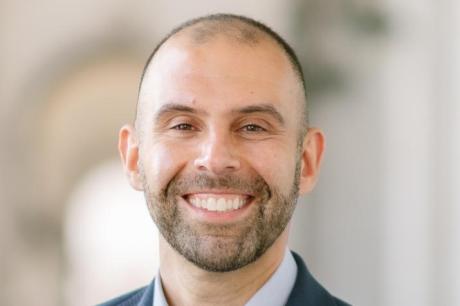Published April 18, 2008, last updated on February 13, 2013
by Matt DeCamp, Ph.D.
In a world where two billion people lack access to essential medicines, global health inequality may be the most pressing moral challenge of our time.

Other startling statistics motivate this sentiment: Life expectancy in the United States is three decades longer than life expectancy in the United Republic of Tanzania (where, tragically, life expectancy has actually declined recently). One quarter of Durham’s population lacks health insurance, creating a barrier to their health care access.
To judge these statistics as representative of a pressing moral (or ethical) challenge implies several ideas: first, that these statistical inequalities represent unfairness (that is, they are inequities); second, that we ought to change this circumstance; and third, that we actually can do something to create this change. “Global health ethics” encompasses all of this. In fact, it’s hard to think about global health inequalities without acting on them.
Not surprisingly, a large part of global health ethics involves asking why we ought to reduce global health inequities. Have you ever wondered this?
My own research, for example, explores the implications of accepting a human right to a basic minimum of health care. Others examine global health inequalities through the lens of charity, special concern for the world’s worst-off, demands for pure equality, or our own self-interest (to achieve greater global political stability or reduce emerging infectious diseases).
In the long run, differences among these perspectives are important: How far we ought to go to reduce health inequalities and our motivations to act depend on this why question. In the short run, though, global inequities are so vast that doing almost anything could be an improvement.
The good news is that everyone can fulfill his or her ethical obligation toward global health—without leaving home.
More specifically, individuals can take advantage of their personal strengths through:
Education, by teaching or enrolling in global health and global health ethics courses, attending global health-related events and seminars, or simply engaging in informal conversation about global health;
Research, by conducting, volunteering, or supporting research in global health related projects, no matter how big or small;
Policy, by shaping or increasing public awareness of important global health-related policies; or
Health delivery, by donating time overseas in short- and long-term medical outreach trips.
Importantly, contributing in any of these areas might not require leaving Durham. How is this possible?
I’ll tell you:
Education does not require a plane ticket. In fact, traveling abroad to see “real poverty” or developing world diseases from an educational perspective might be suspect, unless such trips contribute tangibly to greater longer-term gains in global health equity.
Research here in Durham on hypertension in black Americans or HIV risks among Hispanics surely counts as part of global health.
Domestic policies often impact global health, from the State Children’s Health Insurance Program to the President’s Emergency Plan for AIDS Relief. These policies are particularly important and require attention and advocacy during this election year.
Health delivery in the name of global health equity can also occur locally, through volunteering to sort surplus medical supplies for donation through Duke PLUS.
It’s important to end with a word of caution. The “pressing moral challenge” of global health is not about reframing what we already do as fulfilling our ethical obligation. Instead, the challenge is to think about what we ought to do to improve global health equity, why we ought to do it, and how we can do it well.
This is what global health ethics is all about.
To learn about many of these opportunities, visit http://www.globalhealth.duke.edu
Matt DeCamp, Ph.D., received in his doctorate from the Department of Philosophy in 2007 and will graduate from the School of Medicine in May.
This article originally appeared in Inside Duke Medicine, volume 17 number 4 in April 2008.


